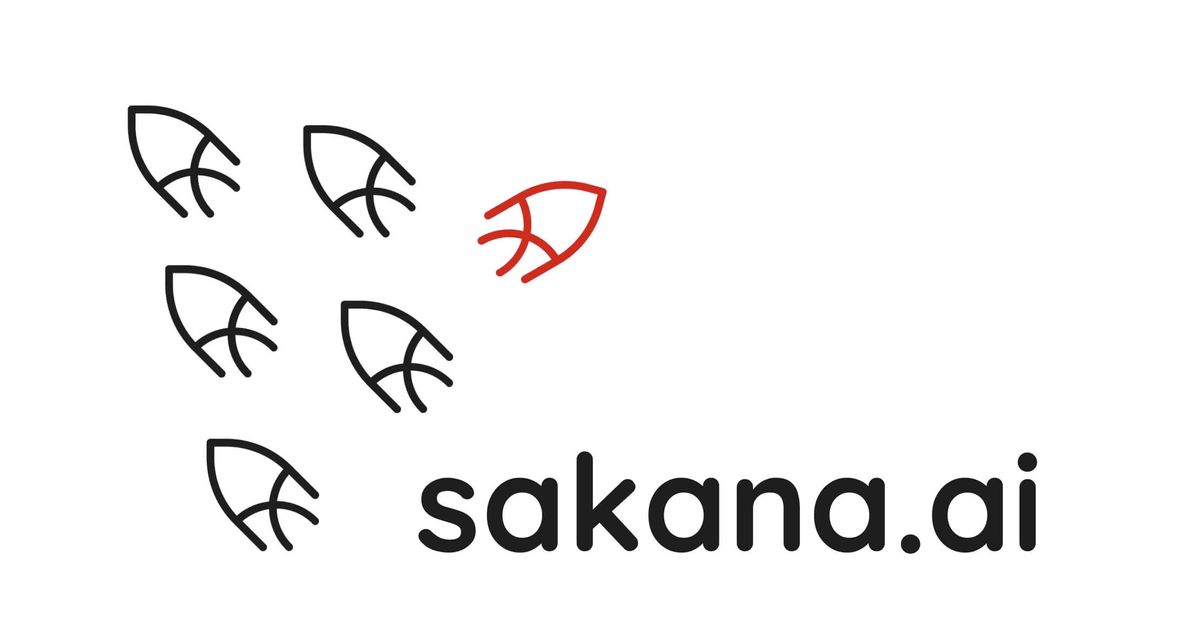
A new AI research lab called Sakana AI, based in Tokyo, Japan, is taking inspiration from nature to build the next generation of AI. The fledgling company was founded by two AI luminaries who previously worked at Google and helped pave the way for today's AI boom - Llion Jones and David Ha.
Jones was one of the authors of the seminal 2017 Google research paper "Attention Is All You Need", that introduced an AI architecture called transformers. Transformers now form the backbone of popular technologies like ChatGPT and AI image generators like Midjourney. After nearly 12 years at Google, Jones recently left the tech giant to launch Sakana AI and serve as its CTO.
Ha, who will be the CEO, was previously head of Google's AI research team in Japan and most recently led research at AI startup Stability AI. Together, Jones and Ha aim to develop new kinds of AI models based on principles they've gleaned from observing natural systems.
The name Sakana, derived from a Japanese word さかな (sa-ka-na) for fish, reflects their ethos. It is meant to evoke the idea of a school of fish comprised of individual units coordinating together to form a coherent whole. Jones and Ha believe current AI models are too rigid and brittle, engineered like buildings rather than able to adapt to their environments. They take inspiration from collective intelligence in nature and principles like evolution and emergence to build more flexible, responsive AI.
This approach could address issues like the high cost and potential security risks of today's massive AI models that require immense amounts of data and computing power. The founders hope to pioneer cleverer, more efficient methods that don't involve simply scaling up transformer models.
While not sharing specifics yet, they suggested possibly using interconnected smaller models that can "work with each other to solve problems", similar to how schools of fish or flocks of birds coordinate. This could be more secure and sustainable than centralized models holding huge amounts of data.
The choice to locate in Tokyo also reflects Sakana's unconventional outlook. Other prominent ex-Google AI experts have clustered in global hubs like Silicon Valley to launch startups amid fierce competition for top talent. Jones and Ha intentionally went against the grain, believing Tokyo offers key advantages.
They cite the strong technical infrastructure, educated workforce, and thriving environment for research. The city attracts international talent yet offers opportunities to tailor models for non-Western needs. "Training data and machinery around models performing well in other cultures will catalyze the next breakthrough," the founders note.
Sakana enters an extremely crowded space, with tech giants like Google and Microsoft, racing alongside startups like Anthropic, Cohere, and OpenAI. With Microsoft's $10 billion partnership with OpenAI and new players like Cohere and Anthropic attracting billions in funding, it's a gold rush environment.
Yet Jones and Ha believe excessive commercialization has stifled creativity among some AI researchers. They aim for Sakana to recapture the spirit of exploration and discovery.
The startup's unique approach has given hope to other researchers eager to experiment beyond today's commercial pressures. Sakana has already brought aboard an academic researcher and plans to hire more talent interested in foundational research.
True to its name, Sakana is swimming against the tide. But its founders' pedigrees and novel, nature-inspired approach suggest it could make waves in AI with fresh ideas the crowded field has yet to explore. The startup's early moves hint at a pivot back to principles that launched the AI boom but may have gotten lost in the gold rush.

